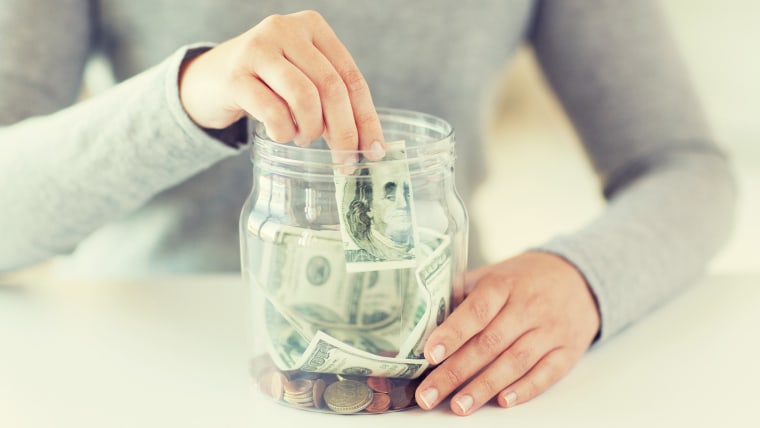Women were already less prepared for retirement than men.
Then the pandemic hit.
The gender gap in retirement savings has long been an issue even among those with adequate investment accounts, and the coronavirus pandemic has made the disparity even worse, according to a survey released Monday from the Nationwide Retirement Institute.
Nearly three in four women with investable assets of $100,000 or more said the pandemic has negatively affected their ability to retire, according to the survey, which questioned more than 2,500 investors, advisors and financial professionals online between May 17 and June 25, 2020.
In addition, the survey showed that women may be less prepared than men to protect their invested assets in volatile markets or have an established strategy against outliving their assets. It also showed that women’s top concerns over the next 12 months are protecting their portfolios from Covid-related losses, protecting assets and the cost of health care.
“The impact of Covid has been profound,” said Lori Hall, director of strategic accounts at Nationwide Financial. “But it’s part of a more systemic issue.”
Covid spurs a ‘she-cession’
Covid made the existing gender gap in retirement worse. In 2016, the median household income for women 65 and older was $47,244, including earnings and income from retirement, property and Social Security, according to a December 2020 paper from the National Institute on Retirement Security. For men 65 and older, the figure was $57,144.
There are many things that contribute to a gender gap in retirement savings. Women, for example, still generally make less than men and take more time out of the workforce to care for children or family. Women also tend to outlive men, meaning that they need more savings in their later years.
The coronavirus pandemic has exacerbated many of these already existing issues and is why the ensuing recession has been dubbed a “she-cession.”
Women, and especially women of color, have been more likely to lose their jobs due to overrepresentation in industries hit by Covid, such as leisure and hospitality. They’ve also been more likely to lose work due to caregiving duties, either of children that are doing online schooling at home or elderly family members.
All of these things negatively impact the ability to adequately save for retirement.
What can be done to rebuild?
To be sure, pausing or saving less for retirement during the pandemic because you’ve lost your job, some of your income or had any other change in circumstance is okay. It is possible to get back on track and rebuild your retirement savings.
“In the short term, it is okay if you have to adjust,” said Marguerita Cheng, a certified financial planner and CEO at Blue Ocean Global Wealth in Gaithersburg, Maryland.
One way to rebuild your retirement savings is to continue to make any contributions you can to your 401(k), or an individual retirement account if you’ve lost your job and access to employer-sponsored plans, said Kelly DiGonzino, CFP, director of financial planning at Beacon Pointe, an independent advisory firm in Newport Beach, California.
Any amount that you’re able to invest will grow over time aided by the stock market. “The market has been going up like crazy,” DiGonzini said.
If you can’t save consistently, allocating part of windfalls such as a stimulus check or tax refund is a good way to contribute to retirement, said Cheng, who is a member of the CNBC Advisor Council.
Women should also focus on spending and living within their means, especially if they’ve changed, said Shweta Lawande, a CFP and analyst at Francis Financial, a New York-based firm dedicated to serving women, couples and those experiencing divorce.
“What we’re trying to share with our clients in this time is to focus on what they can control,” she said. While they can’t control lockdowns or the job market, they can make sure their budgets are airtight, she added.
And, those with an existing portfolio can take some time to check their asset allocations to ensure they’re invested in a diverse group of stocks, bonds, real estate cash and more, said Lawande, adding that it reduces risk.
“Even in a year like 2020, we saw the benefits of our clients who have stayed invested in the market and diversified,” she said.
Working with a financial advisor, if possible, can also help women make sure they’re on track to retire when they’d like to and to formulate a strategy to course correct if they’re not.
Fortunately, data from the Nationwide survey showed that many women are already taking this step — 67% of women said they’d worked with a financial advisor or planner in 2020, up from 58% in 2019.
“I was surprised and encouraged and excited to hear that women have closed the gap on seeking advice,” said Ann Bair, senior vice president of marketing at Nationwide Financial. “It really speaks to women kind of taking control and knowing that they need to be on top of this.”
This article originally appeared onInvest in You: Ready. Set. Grow., a CNBC multiplatform financial wellness and education initiative, in partnership with Acorns.
Disclosure: Invest in You: Ready. Set. Grow. is a financial wellness and education initiative from CNBC and Acorns, the micro-investing app. NBCUniversal and Comcast Ventures are investors in Acorns.
